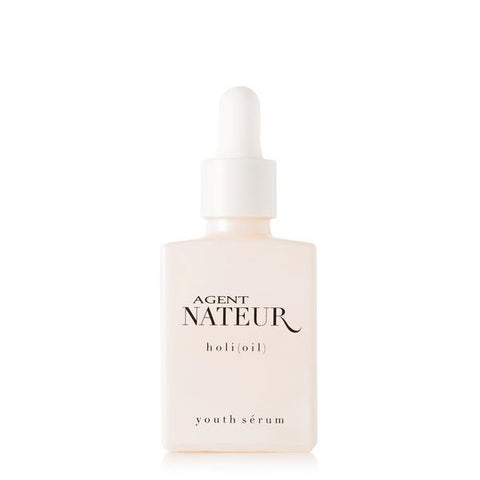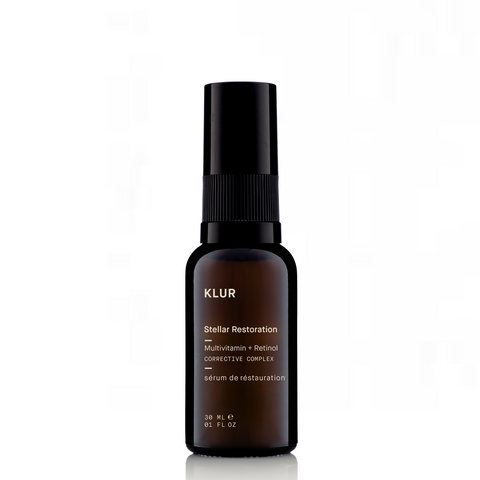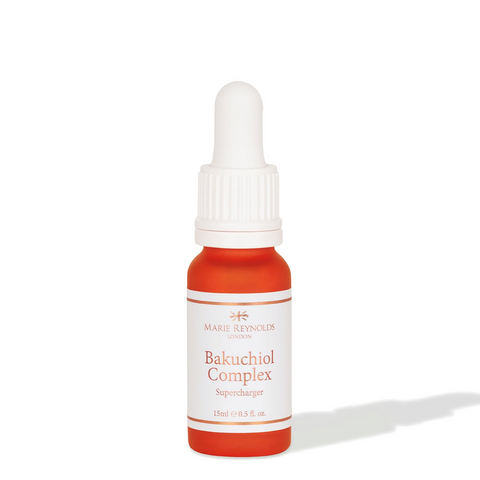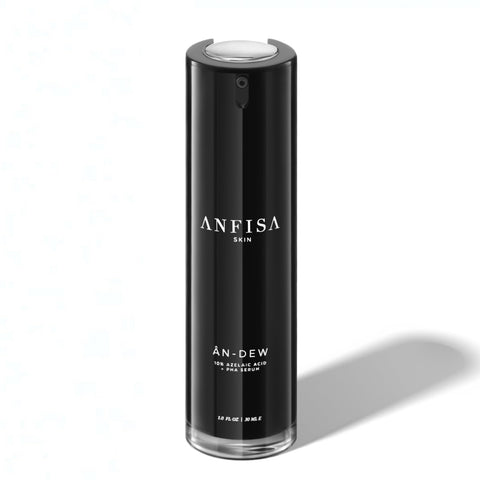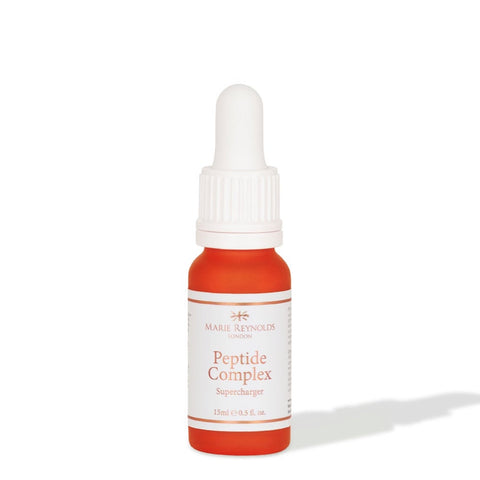How Stress And Anxiety Affect The Skin
March 05, 2024
Many of us dream of a stress-free life, but guess what, living without any stress is actually not healthy! Research suggests that as we age, moderate levels of stress can stimulate the development of cognitive functions in humans, whilst in the absence of any stress, there is a significant likelihood of cognitive decline and diminished sense of empathy.
With that being said, however, when stress becomes excessive, not only would it affect our emotions, daily lives, as well as psychological and physical well-being, it would also significantly impact our skin health!
Today, let's discuss the various skin issues that can be caused by stress and explore coping strategies beyond stress reduction.
The brain-skin axis is an interconnected pathway, so when the brain experiences stress, the skin reacts. A typical example is when you temporarily blush or sweat due to nervousness. However, research shows that when the brain is constantly exposed to stress, it can have lasting effects on your skin, which can manifest as conditions like eczema, psoriasis, rosacea, acne, and hair loss.
This is because stress triggers the hypothalamic-pituitary-adrenal (HPA) axis, a trio of glands that play a crucial role in the body's response to stress, aka the "fight-or-flight" response, and the release of pro-inflammatory factors, such as cortisol and catecholamines in local areas. These factors can direct immune cells to enter the skin through the bloodstream or stimulate inflammatory mast cells, causing various reactions on the skin, such as itchiness and redness.
Now, the key point is that the pathway between the brain and the skin is not one-way but bidirectional!
Research has found that the skin and hair follicles have complex mechanisms that can generate their own stress-inducing signals, which can travel to the brain and perpetuate the stress response.
Since the skin is constantly exposed to the external environment, it is more susceptible to environmental factors that can induce stress hormones. For example, the skin produces stress hormones when exposed to UV rays and temperature stimuli, and then sends these signals back to the brain, which can in turn contribute to psychological stress.
In addition, when you feel frustrated, sad, helpless, or upset due to skin problems, it can invisibly create psychological stress, which in turn can worsen the skin issues.
In short, psychological stress can affect skin conditions, environmental factors can induce psychological stress through the skin, and skin conditions can also contribute to psychological stress, all of which ultimately perptuate the stress-skin cyrcle.
Cortisol is a natural hormone in the human body that helps regulate blood sugar levels, metabolism, immune response, and memory formation. It also assists in regulating the body's daily circadian rhythm, helping us wake up and fall asleep. Under normal circumstances, it also helps the body reduce inflammation. Issues arise, however, when the body experiences stress or anxiety, triggering the aforementioned "fight-or-flight" response and causing an excess production of cortisol. Without proper relief, the excess cortisol accumulated in the body can intensify internal inflammation and lead to skin conditions such as eczema, rosacea, psoriasis, and sensitivity.
Furthermore, as cortisol levels increase, the body produces higher levels of insulin, which stimulates the skin to produce excessive sebum, exacerbating acne, pimples, whiteheads, blackheads, and enlarged pores.
【 How to Improve 】
To combat inflammation, consider products that contain probiotic live cultures and prebiotics to provide additional ammunition for the skin's defense against inflammation. Probiotic live cultures can produce a natural antibiotic called "antimicrobial peptides" that offer antibacterial, antimicrobial, and anti-inflammatory properties. They can also establish a protective barrier on the skin's surface, preventing harmful bacteria from entering skin cells. Additionally, probiotics can calm skin cells and prevent an overactive immune system response. On the other hand, prebiotics serve as a food source for probiotics and the good bacteria on the skin, while ensuring a more diverse microbial community on the skin's surface and promoting skin health.
Product Recommendation
MARIE REYNOLDS LONDON
Restore <- Click to Shop
Product Recommendation
MARIE REYNOLDS LONDON
Butter Balm <- Click to Shop
Research shows that stress can increase the proliferation of keratinocytes and local tissue inflammatory cytokines, severely compromising the skin's natural barrier function. When the barrier is disrupted, the skin's ability to retain moisture decreases, leading to dryness, dehydration, tightness, and excessive oiliness. Additionally, the skin's defense ability against allergens and bacteria also decreases, making it more susceptible to redness, sensitivity, and even acne and inflammations.
【 How to Improve 】
Let's use the analogy of a reservoir to explain. If the water in the skin is like the water in a reservoir, then oils, or lipids, is like the cement and construction materials of a dam, helping to prevent water from escaping and blocking pollutants, dirt, insects, and even animals from entering the water.
In other words, to improve dryness caused by stress, the first thing to do is to repair the skin barrier that is damaged by stress. Therefore, it is critical to add a face oil in your skincare routine, because the lipids in it are the main components of the skin barrier. Additionally, face oils contains vitamins, minerals, antioxidants, polyphenols, proteins, carotenoids, anti-inflammatory and antibacterial substances, as well as many other phytonutrients that the skin cannot synthesize on its own, all of which are highly beneficial for skin health.
The second most important thing to do is to hydrate the skin. Note that replenishing the skin with oils (to repair the barrier) and water, should be done simultaneously. This is because the skin works like a broken dam————when there are gaps in the dam, no matter how much water is poured into the reservoir, it will still leak, and dirt, insects, and animals will constantly contaminate the entire reservoir.
Then don't forget to seal in all the nutrients with a lightweight moisturizer that is highly reparative. Also, don't rely on heavy, rich moisturizers, thinking that they will take away the dryness. They never truly repair the skin barrier and, in fact, can easily lead to clogged pores and acne breakouts!
Product Recommendation
MARIE REYNOLDS LONDON
Ceramide Complex Supercharger <- Click to Shop
Product Recommendation
AGENT NATEUR
holi(oil) Ageless Face Serum <- Click to Shop
Product Recommendation
KLUR
Unseasonal Kind Lipid Replenishment Oil <- Click to Shop
Product Recommendation
EATH LIBRARY
The Pure Wonder Active Serum <- Click to Shop
Product Recommendation
AGENT NATEUR
holi(crème) Filter Face Crème <- Click to Shop
Too much cortisol in the body can break down collagen and elastin, while anxiety damages hyaluronic acid and cellular DNA, both of which accelerate skin aging, resulting in loss of elasticity, sagging, and the appearance of longer and deeper wrinkles. Additionally, constant frowning or maintaining tense facial muscles for extended periods of time under stress can also accelerate the formation of wrinkles, especially frown lines, forehead lines, crow's feet, and laugh lines. Over time, the skin's resilience becomes weaker, and these expression lines will become permanent wrinkles.
【 How to Improve 】
Firstly, always be mindful not to scrunch your face up other time, otherwise, nothing would hlep!
Secondly, when choosing skincare products, look for ingredients that have been clinically proven to stimulate collagen, elastin, and hyaluronic acid production, such as retinol, peptides, bakuchiol, and alpha hydroxy acids (AHAs), etc. Additionally, consider taking collagen supplements to support the production of collagen, elastin, and hyaluronic acid in the body!
Remember, collagen takes time to be produced within the skin. Realistically speaking, it will take at least 3-6 months to see real results, and if you want long-lasting effects, consistency in usage is key!
Product Recommendation
KLUR
Stellar Restoration Corrective Complex <- Click to Shop
Product Recommendation
MARIE REYNOLDS LONDON
Bakuchiol Complex Supercharger <- Click to Shop
Product Recommendation
AGENT NATEUR
holi(lift) Ageless Lifting and Firming Serum <- Click to Shop
Product Recommendation
TWELVE BEAUTY
Plant Perfection Gel Serum <- Click to Shop
Product Recommendation
KLUR
Sculpture + A Overnight Enrichment Cream <- Click to Shop
Product Recommendation
AGENT NATEUR
holi(mane) <- Click to Shop
Why does our faces turn red when we're nervous? This is because anxiety and agitation can increase blood flow, leading to temporary dilation of the blood vessels in the face. In severe cases, it can even cause swelling! Occasional occurrence of this condition is not a major concern, but when the blood vessels remain dilated for a prolonged period of time, redness can persist and won't fade away. If you have rosacea, it is even more important to maintain healthy levels of stress and cortisol to avoid further aggravating the blood vessels and worsening the issue.
【 How to Improve 】
Choose reparative products that are highly soothing and have anti-redness and irritation properties to minimize redness issues, and avoid any form of friction, such as vigorous cleansing, skincare and massages, or using cotton pads, facial brushes, amd scrubs exfoliators, etc. Additionally, it is important to stop using irritating products, such as vitamin C products containing L-ascorbic acid (pure vitamin C), foaming cleansers, oil-control products, and so on.
Product Recommendation
ANFISA
ÂN-DEW 10% Azelaic Acid + PHA Serum <-Click to Shop
Product Recommendation
MARIE REYNOLDS LONDON
Peptide Complex Supercharger <- Click to Shop
Product Recommendation
TWELVE BEAUTY
Purifying Cleansing Beauty Cream <- Click to Shop
The liver's main functions are removing toxins and waste products from the blood and regulating carbohydrate metabolism throughout the body. Research has shown that stress can directly and indirectly damage liver tissue, leading to inflammation and impairing the proper functioning of our liver. When the liver is unhealthy, toxins that accumulate in the liver can enter the bloodstream, causing various health issues. Skin issues such as eczema, rosacea, acne, psoriasis, overgrowth of candida, cellulite, etc., can also worsen as a result.
【 How to Improve 】
One very important point——don't resort to excessive alcohol consumption as a way of dealing with stress! Drinking alcohol not only fails to solve problems but also greatly harms the liver!
It is also crucial to help cleanse the liver in order to improve its detoxification function, strengthen its overall functionality, repair and regenerate liver tissues, and address the aforementioned issues caused by liver damage. Otherwise, as liver function worsens, so does the condition of the skin. Foods and nutrients that can help cleanse and promote liver health include artichokes, garlic, turmeric, dandelion root, beetroot, ginger, burdock root, fennel seeds, cilantro, cayenne pepper, choline bitartrate, N-acetyl cysteine (NAC), alpha-lipoic acid (ALA), and vitamin B7.
Product Recommendation
MARIE REYNOLDS LONDON
Liver Rescue <- Click to Shop
The skin surface is healthiest when it is at a slightly acidic pH of 4.7. However, the internal body needs to be in an alkaline state to function properly and effectively, as well as to absorb minerals and nutrients. Stress has been proven to increase body acidity and disrupt the body's pH balance——when we experience stress or anxiety, our body enters the "fight-or-flight" state, leading to an excessive production of cortisol. Elevated cortisol levels cause minerals like calcium, magnesium, potassium, and sodium to be taken from the bones and organs, making the body more acidic. In response, our organs produce more cortisol to excrete the excess acid, creating a vicious cycle of increasing acidity.
When the body remains in an acidic state, enzymatic processes are hindered, and waste products and toxins become trapped in the extracellular matrix, resulting in cellular dysfunction and inflammation. This can ultimately lead to skin conditions such as acne, eczema, rosacea, and psoriasis, as well as an increased risk of heart disease, obesity, diabetes, autoimmune diseases, chronic pain, and other chronic illnesses.
【 How to Improve 】
Alkalizing the body is an important aspect of maintaining skin and overall health. Algae such as Chlorella, Apirulina, Ascophyllum nodosum, Fucus vesiculosus, and sea kelp have the ability to alkalize the internal body environment and help the body maintain optimal alkaline levels.
Do however note that cooking algae can affect its nutrient content, as certain nutrients can be damaged and lost during cooking with heat and water. This is why consuming algae via supplements may be the best way to go, as the tough cell walls of some types of algae would have been broken down without losing valuable nutrients, making them easier for the body to digest and absorb.
Product Recommendation
MARIE REYNOLDS LONDON
Evolve <- Click to Shop
Stress has a direct impact on gut health and sleep quality, both of which also directly affect skin health and can trigger various skin problems. Elevated cortisol levels due to stress can lead to symptoms such as indigestion, stomach pain, bloating, and constipation, which in turn can result in acne, inflammation, and dull skin tone. On the other hand, during sleep, the body releases molecules such as beta-endorphins, growth hormones, and oxytocin. If sleep quality and quantity is compromised due to stress, the skin would not be able to undergo proper self-repair.
In fact, the influence of sleep on the skin is tremendous! In the next article, we will delve into the relationship between sleep and skin. So stay tuned!
The truth is, the ultimate solution is to find suitable stress relief and relaxation methods for oneself (but definitely not turning to smoking and alcohol!). And what can be done to reduce elevated cortisol levels?
Exercise, meditation, and yoga are well-known effective stress relief methods. However, even activities such as watching TV dramas, listening to music, reading books, enjoying your favorite foods, or simply spacing out can be good choices! The key is to remember to regularly set work, daily chores, and worries aside and engage in activities you enjoy. Additionally, it may be beneficial to spend at least an hour away from the phone every day, allowing the brain and mind some breathing space. You may also want to embrace nature a little more——it is said that even staring at a tree alone can reduce cortisol levels!
Another important thing is to look in the mirror a little less. It doesn't mean neglecting skin issues, but the more you look in the mirror, the easier it is to develop appearance-related anxiety, which not only makes you unhappy but also intensify the psychological stress that can exacerbate skin problems. Why torture yourself like that?
Also in The Journal

The Anti-Aging Gold Standard: How Retinol Reshapes The Skin
November 12, 2025
Learn why retinol is the gold standard for anti-aging, how it works, what similar ingredients exist, and some common myths and misconceptions.

The Gut-Skin Connection: The Path to Healthy Skin
October 26, 2025
Acne, eczema, rosacea, and sensitivity can all be linked to the gut health, and even gluten? Learn all about the connection between the gut and the skin.

The Secret to Reversing Skin Aging! How Growth Factors & Peptides Help Turn Back the Clock
October 13, 2025
Tired of wrinkles, sagging skin, lack of elasticity, inflammation, dryness, and even hair loss? Learn how growth factors and peptides reverse skin aging.
+Recent Articles
-
The Anti-Aging Gold Standard: How Retinol Reshapes The Skin
November 12, 2025
-
The Gut-Skin Connection: The Path to Healthy Skin
October 26, 2025
-
The Secret to Reversing Skin Aging! How Growth Factors & Peptides Help Turn Back the Clock
October 13, 2025
-
The Best Ways and Times to Take Different Supplements
August 19, 2025
-
Luxury vs. Budget-Friendly Skincare Products——What Are Their Differences?
August 06, 2025
-
How to Prevent and Improve Post-Inflammatory Hyperpigmentation (PIH)
July 10, 2025
-
How to Prevent and Improve Post-Inflammatory Erythema (PIE)
July 08, 2025
-
The Ultimate Cleansing Guide to Improve Skin Conditions
June 03, 2025
-
Do You Have Sugar Face? How Does Sugar Affect Our Skin and Appearance?
May 20, 2025
-
Do You Have Gluten Face? How Does Gluten Affect Our Skin and Appearance?
April 15, 2025
Subscribe to get skincare knowledge delivered to your inbox!





